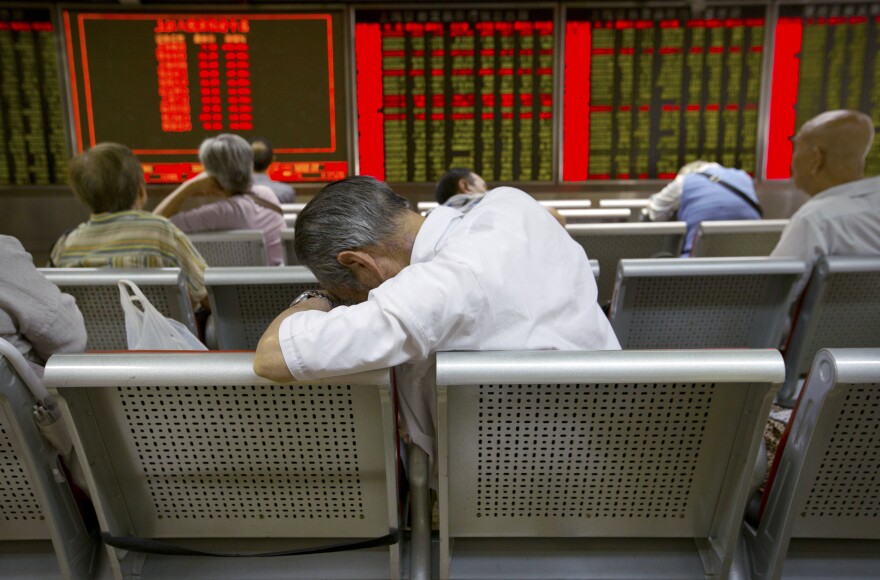Despite another bloody day on the Chinese markets, stocks around the world stabilized on Tuesday.
The Shanghai Composite continued its slide, ending the day 7.6 percent lower and below 3,000 for the first time since December. The plunge is the biggest since 1996. The European markets, however, seemed to shrug off the Chinese rout.
The Wall Street Journal reports:
"The Stoxx Europe 600 index was 2.8% higher midmorning, following a 5.3% slump on Monday. Germany's DAX rose 2.6%, France's CAC 40 climbed 2.9%, and the U.K.'s FTSE 100 was 2.3% higher.
"U.S. stock futures indicated opening gains of around 3% for the Dow Jones Industrial Average and S&P 500. Still, the scale of the gains was small compared with Monday's wild swings in the market. Changes in futures aren't necessarily reflected in market moves after the opening bell."
Of course, we're talking about this now because the U.S. markets have been in correction territory for the past week. The closely-watched S&P 500, for example, is now down 11 percent since its May peak.
Investors in the U.S. are watching China but closer to home, they're watching what the Federal Reserve and whether it decides to raise its benchmark interest rate.
On Morning Edition, the former Secretary of the Treasury Larry Summers said he doesn't believe the Fed should raise interest rates now.
"There is as much a case for the accelerator as there is for using the brakes," Summers said.
The Fed, Summers said, should only increase interest rates from their historic lows if they begin to see a threat of inflation.
"This is not the moment to be making that kind of adjustment," Summers said, warning that a change in the interest rates risks throwing the markets into crisis.
Update at 10:13 a.m. ET. Dow, S&P Soar:
About 45 minutes after their opening, the Dow Jones and the S&P 500 are recovering nicely this morning.
The S&P and Dow are both up more than 2 percent.
Copyright 2020 NPR. To see more, visit https://www.npr.org. 9(MDAwMTM1NDgzMDEyMzg2MDcwMzJjODJiYQ004))



